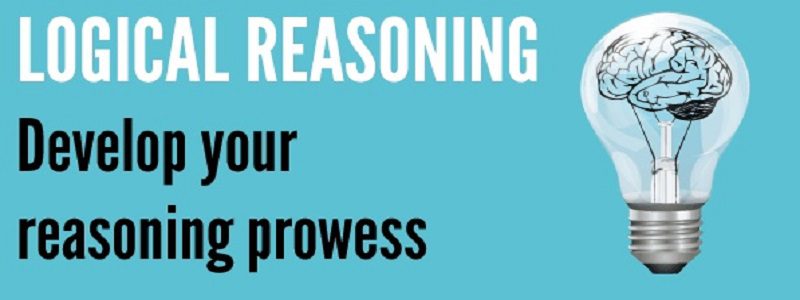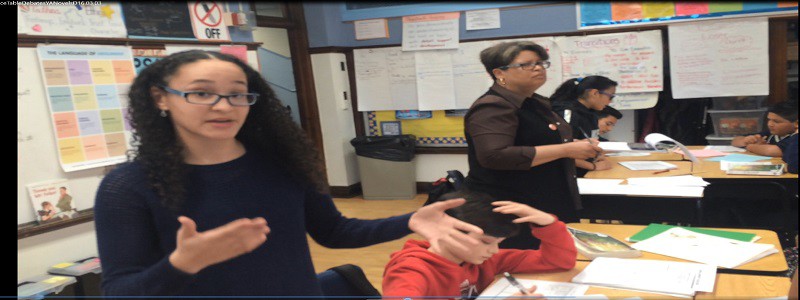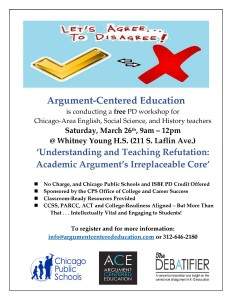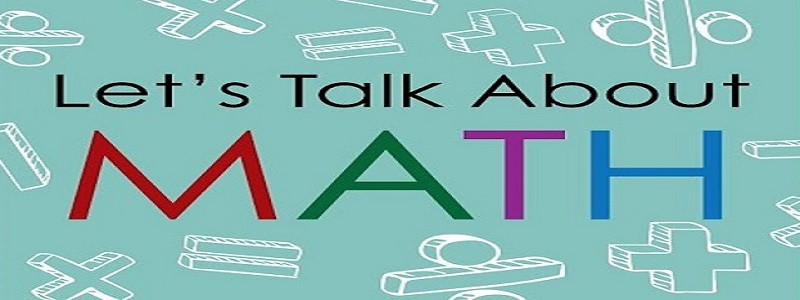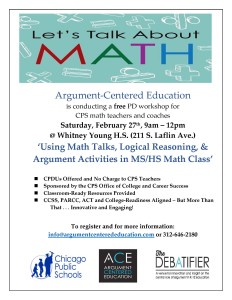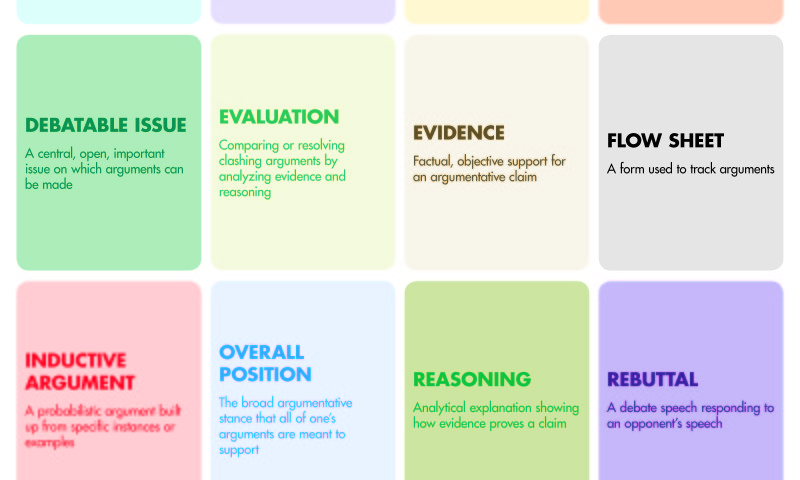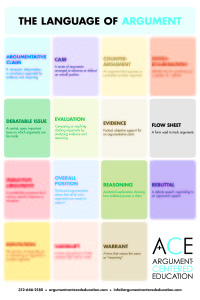NEWS
Reasoning and Refutation: Improving the Instruction of Argument Making and Argument Writing
Logistics
Argument-Centered Education will be offering two full days of professional development workshops on July 20th and 21st, sponsored by the Chicago Public Schools Department of Social Science and Civic Engagement, free to all CPS teachers. Running from 8:30am – 3:00pm, at the Garfield Park CPS offices (2651 W. Washington Blvd.), professional development credit will be issued by the Illinois State Board of Education and CPS for participating teachers.
Looking in on an Argument-Centered Classroom
For a look into a fully argument-centered classroom, click on the video below. You’ll view a 7th grade reading class at Peirce International School, taught by Donna Lawrenz, as they conduct table debates on young adult novels. The texts — Lord of the Flies, Camp, and The Goat — were selected and assigned by Ms. Lawrenz for their lexile levels, literary merit, and the interest they elicit in students (and teacher!).
Table debates are organized around a higher-order arguable issue on each novel — for example: Does Lord of the Flies express the view that human beings are too primal and animalistic to sustain orderly civilization? Debated (well) by 7th graders.
Peirce is in the second year of its partnership with Argument-Centered Education. What you can see in its argument-centered classrooms are several academic performance-producing elements:
- Full-class, energetic involvement
- Ease with text-based argumentation
- Refutation and the critical thinking it activates, tracked by students (difficult and unusual but essential)
- High expectations for all
- Results of teacher capacity-building
For additional views of argument-centered classrooms, take a look at the videos toward the bottom of this page.
Understanding and Teaching Refutation: Academic Argument’s Irreplaceable Core — A Professional Development Workshop on Saturday, March 26th
He who knows only his own side of the case knows little of that. His reasons may be good . . . . But if he is unable to refute the reasons on the opposite side, if he does not so much as know what they are, he has no ground for preferring either opinion . . . . Nor is it enough that he should hear the opinions of adversaries from his own teachers, presented as they state them . . . . He must be able to hear them from persons who actually believe them. . . . he must know them in their most plausible and persuasive form.
— John Stuart Mill, On Liberty, 1859
Argument-Centered Education is conducting a free PD workshop for Chicago-area high school and middle school English, Social Science, and History teachers. It will take place Saturday, March 26th, 9am – 12pm, at Whitney Young Magnet H.S., 211 S. Laflin Ave. CPS and ISBE professional development credit will be provided. Registration is required.
This workshop focuses what is at once probably the most under-appreciated, under-taught, and the most essential and irreducible of all of the components of academic argument: refutation. To Argument-Centered Education, refutation should be broadly conceived, but never omitted or held off till later. Defined capaciously, refutation is anything a writer/speaker does when they differentiate their own view from that of another view. In effect, when someone is agreeing with a difference, or partially agreeing, or partially critiquing, or anything else they do other than 100% complete agreement, we understand this as “refutation.” Writers or speakers are asking that their view substitute for the other person’s view — even if their view is the other person’s view plus or minus some small correction, etc. Sometimes this is defined in an argument context as “responsiveness.” Responsiveness is closely related, and is a criterion ACE uses for effective refutation, but there is in fact too much looseness out there on counter-argument. Rigorous argumentation cannot accept any old kind of response to the other side’s arguments. We want students to understand that their response either succeeds or not in replacing or modifying another view with their own — succeeds or not in “refuting” it, as long as refutation is given its broadest possible definition.
We will explore in this workshop the ways that refutation is conducted in academic argumentation, the way that it can be effectively taught in the MS and HS literacy-based classroom. We will incorporate actual refutation activities used in English language arts, history, natural science, and social science classrooms (one for each discipline). And we will apply and distribute classroom-ready refutation resources.
Agenda
I. Argument-Centered Pedagogy and the Importance of Refutation
II. Activity 1: Using Counter-Argument and Refutation Builders, with Written and Visual Text (English Language Arts)
III. Activity 2: Tracking Arguments in Order to Enforce Critical Thinking (Natural Science)
IV. Activity 3: Conducting Classroom Debates that Incorporate Robust Refutation (History/Social Science)
V. Questions, Reflections, Wrap-Up, and Review
To register and for more information: info@argumentcenterededucation.com or 312-646-2180.
Math Talks, Logical Reasoning, and Argument Activities in Math — A Professional Development Workshop on Saturday, February 27th
Argument-Centered Education is conducting a professional development workshop on Saturday, February 27th, 9am – 12pm, at Whitney Young H.S. (211 S. Laflin Ave.), on the use of an argument-centered approach to the teaching of mathematics in middle and high school. More specifically, the workshop will examine the new methodology of Math Talks and Number Talks, and explore the ways that argument-centered instruction can help make sure that implementation of these teaching formats, in addition to deductive reasoning and other argumentional activities, can enrich mathematics teaching and make math classrooms more college-leveled.
Argumentation has a prominent place in the Common Core, and is pulled out specifically in Math Practice #3 (“Construct Viable Arguments and Critique the Reasoning of Others”). More broadly, leaders in mathematics instruction are pursuing the ways that math and argumentation theory converge in order to deepen students’ mathematical thinking and fuller comprehension of math processes and practices.
Registration for the 2/27 is easy: simply send an email to info@argumentcenterededucation.com. This workshop is being sponsored by Chicago Public Schools’ Office of College and Career Success.
New ACE Poster Out: ‘The Language of Argument’
Argument-Centered Education has a new poster out for classrooms, offices, hallways, everywhere 6th – 12th grade education happens. Called ‘The Language of Argument,’ it is a convenient reference source for short, direct definitions of the key terms used in academic argument, critical thinking, and classroom debating.
You can order your copies on the Argument-Centered Education Products page, or by contacting us directly — info@argumentcenterededucation.com or 312-848-2271.


